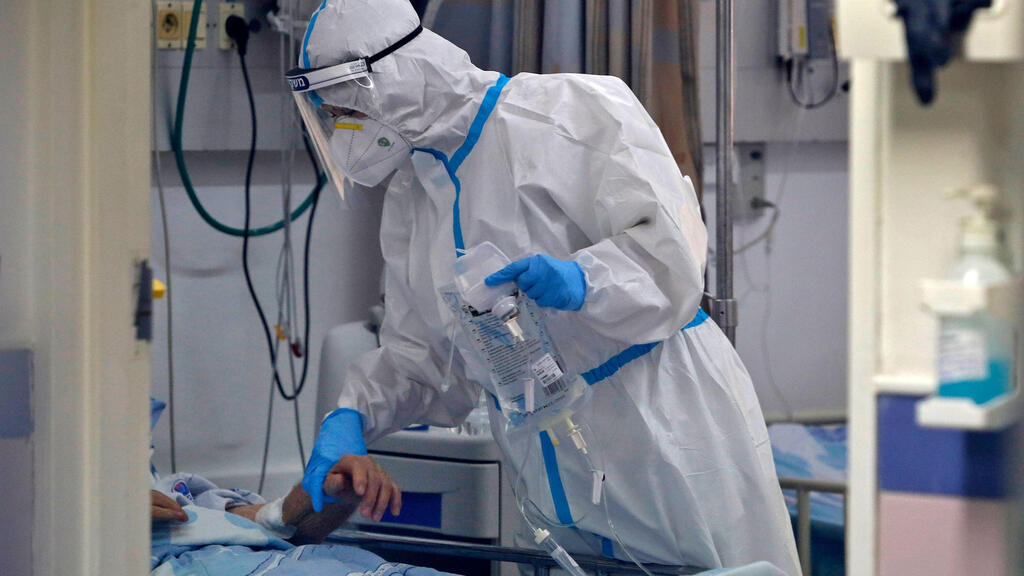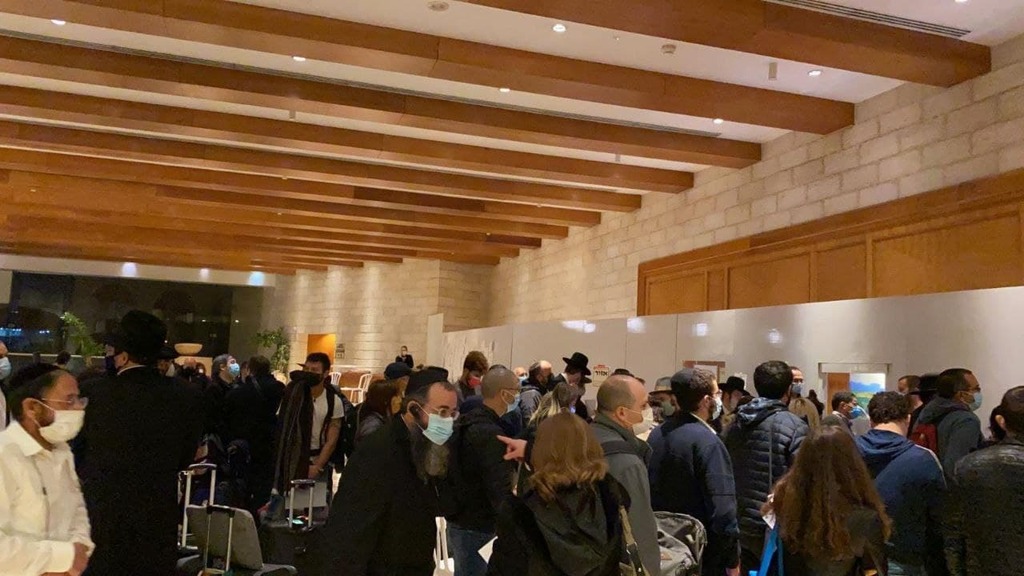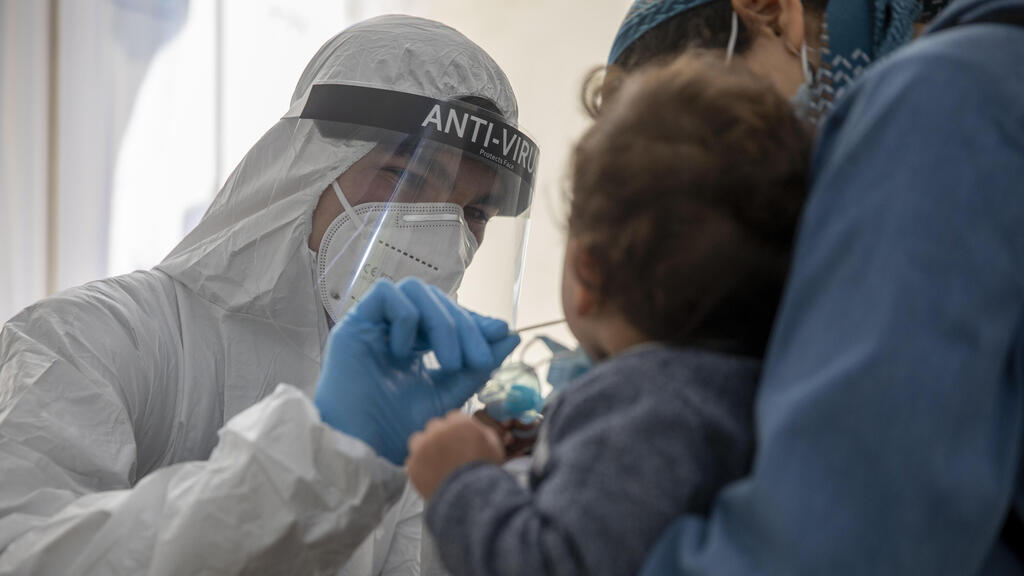As Israel prepared to celebrate a subdued Purim holiday, the country on Wednesday saw its virus reproduction (R) number again creep up to 0.9, raising concerns that the efforts to stem the spread of the coronavirus were faltering.
i
Despite the rise of the R number, the 74,000 tests conducted Tuesday yielded 4,395 new cases of COVID-19, showing an infection rate of 6.1% - down from 7% the day before.
According to the Military Intelligence coronavirus task force, 77.1% of the new cases were in people under the age of 39 and only 5% were in the over-60s.
The data corresponds to the vaccination rates among the Israeli population, with 84% of the over-60s having received at least one dose of the Pfizer vaccine by the start of February.
Israel has however struggled to maintain its swift vaccination drive among younger people as it expanded the campaign to everyone over the age of 16.
In a reflection of this trend, Barzilai Medical Center in Ashkelon said Wednesday that it had seen six new patients admitted overnight - two children, a 25-year-old man and three pregnant women.
3 View gallery


A coronavirus patient being treated at Barzilai Medical Center in Ashkelon
(Photo: AFP)
Health Minister Yuli Edelstein said Wednesday that 150,000 coronavirus vaccines had been administered the day before. He said that 4.5 million Israelis - half of the entire population - have been given one dose of the vaccine and that number includes 3.1 million people who have already received both doses.
Edelstein cautioned Israelis against the misconception that enough people were already immune to the virus and urged people to avoid the traditionally crowded Purim celebrations.
"Celebrate the holiday at home," the minister said in a Twitter post in Hebrew.
On Tuesday, the government voted to impose a nighttime curfew during the three-day holiday in effect from 8.30pm to 5am for Wednesday through Sunday.
Ministers also agreed to suspend intercity public transport at the same times and to reinstate a ban on traveling more that one kilometer from home, in an apparent effort to deter people from attending packed parties.
The police were tasked with enforcing the restrictions during Purim and preventing crowded events from taking place.
3 View gallery


People leaving quarantine hotels on Monday after Knesset fails to extend regulations to keep them open
Meanwhile, the Health Ministry said Wednesday that Edelstein would meet with the head of the Knesset Constitution, Law and Justice Committee over a government decision to reopen state-operated quarantine hotels for arrivals to the country.
The move, which requires Knesset approval, is opposed by the committee chair, MK Ya'akov Asher of the ultra-Orthodox United Torah Judaism party.
The hotels were closed on Monday after the Knesset failed to extend the order facilitating their operation for at least another two weeks.


